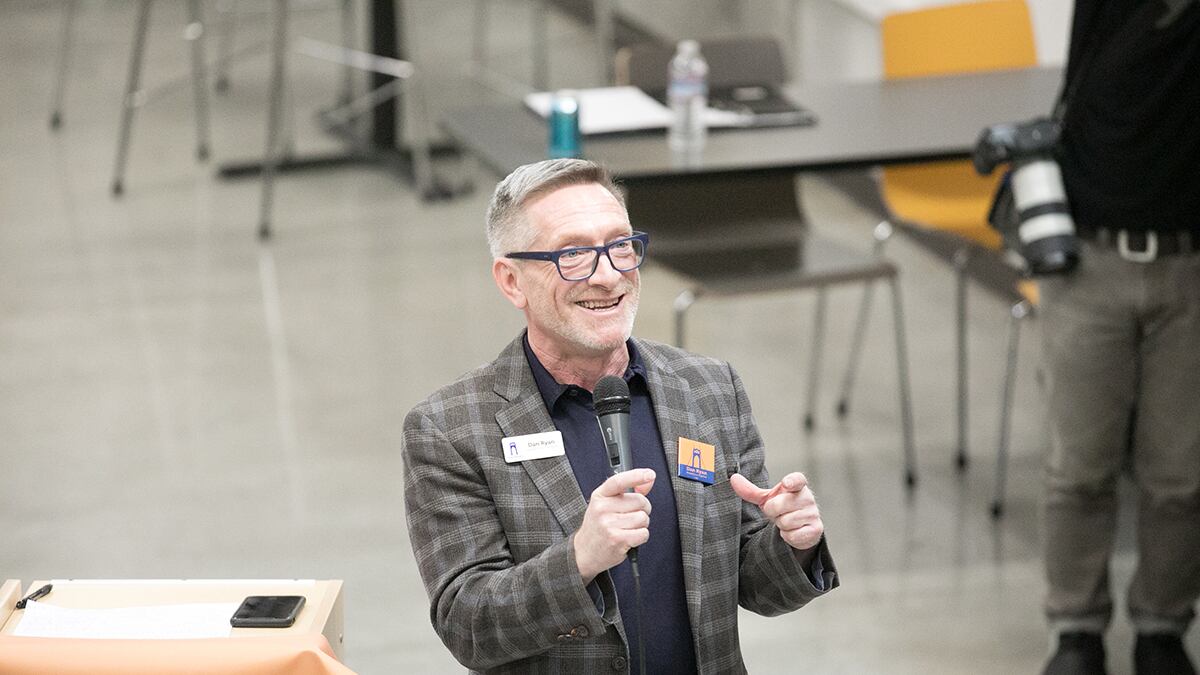For Dan Ryan—one of 18 candidates in the May primary seeking to succeed the late City Commissioner Nick Fish—the COVID-19 pandemic holds a special resonance. In 1986, Ryan, now 57, tested positive for HIV, then little understood but thought to be a death sentence. (More than 32 million people have died from the disease over the past four decades.) Ryan, a veteran non-profit executive who led the educational equity group All Hands Raised for 11 years until stepping down in 2019, has never previously spoken to the press about his illness.
You haven't talked to the press about your HIV diagnosis before. Why now?
For voters, it's good for them to know more about me. I want them to know I'm a tested leader. City Hall is about representing all people and the coronavirus clearly doesn't care what neighborhood you are in or what your party is or anything else. This is one of those moments we need to come together and take care of each other.
When did you first make the connection between the HIV epidemic and COVID-19?
I remember watching CNN and they were featuring the Chinese doctor [Li Wenliang, who tried to draw attention to COVID-19]. My gut felt like it was in 1983: this is going to spread and our government was already starting to say things that were reminiscent of that time. The president was mostly just talking about protecting our markets, Wall Street, travel which reminded me of the bathhouse owners in the gay community in the '80s who didn't want news about HIV to come out.
What are some parallels you see?
The reports about random violence against Asians was a trigger. Late spring in 1983, I was walking across campus at Rutgers where I was studying. This really attractive, friendly guy came up and started talking to me. And he ended with 'you're gay aren't' you?' And I said, "Well, yeah," and the next thing you know, he started pounding on my face and calling me a "fucking faggot spreading AIDS." I had a really bad black eye, and I remember my friends saying, "Are you all right?" And I said, "Yeah, I was drunk and I fell." I made up a story.
What was it like when you got your diagnosis? A lot of people feel fear now and many are dying of COVID-19. What was your experience?
At first, they told you you wouldn't last long. I got pneumocystis [a lung infection] in 1996. The doctor in Seattle, where I was then living, said you have six months to a year to live. So I came home to Portland to die. The big difference today with this moment is everybody is sharing in this experience together. For me, with HIV it was the isolation I felt. Then you couldn't tell anybody because they wouldn't want to hire you, they wouldn't to be around you. You just felt alone.
How has living with HIV changed the way you see the world?
When you are supposed to have been dead for years, you are really comfortable owning your mistakes and moving forward. Failing forward is an awesome philosophy to live by. When we innovate we often have some failures but we can learn from them. Portland has to stop being nice and start owning the tension in the room and learning from that. Here, we draw up these big plans and when they don't work, we just redo the same plan without admitting it didn't work. Like Vision Zero: I was just blown away at the candidate transportation forum with people getting excited about Vision Zero. If we had a midterm grade, for it, it would be an F. Can we just be honest about it?
For a long time, there was a lot of misinformation about HIV. Having gone through that, what would you advise Portlanders as they deal with COVID-19?
There's scientific information and we have to believe it. I think that we also need to remember that, as much as we can get upset with lack of leadership from Washington, D.C. and Salem for that matter, local solutions will rise up. I urge people not to waste too much energy right now being upset with what's not happening but look at what they can do for themselves their loved ones. That's what we had to do with HIV and it really did help, a lot.
